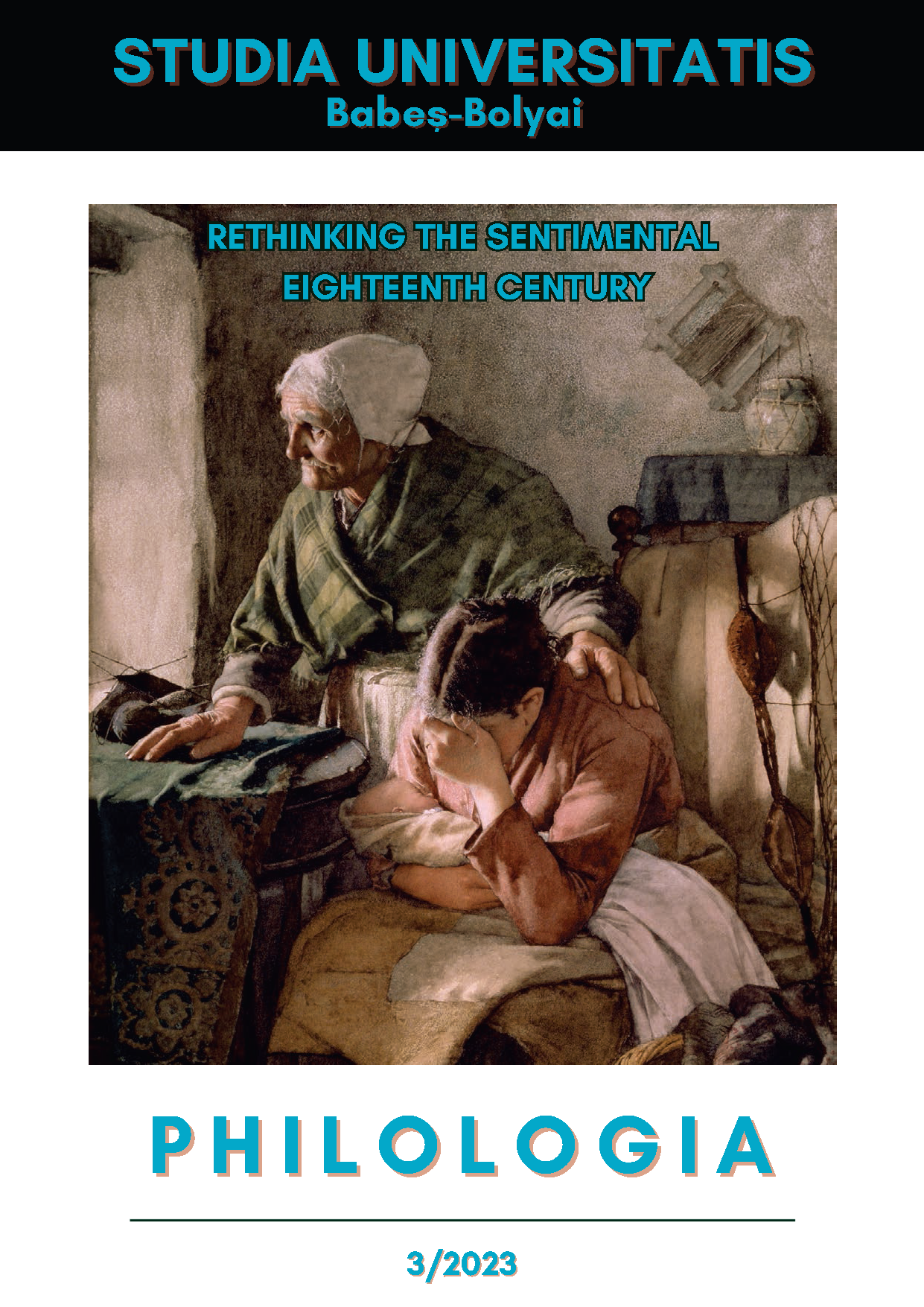“NOT A SINGLE SYLLOGISM FROM BEGINNING TO END”: ON FRAGMENTARINESS AND THE CRITIQUE OF THE NOVEL IN HENRY MACKENZIE’S THE MAN OF FEELING
“NOT A SINGLE SYLLOGISM FROM BEGINNING TO END”: ON FRAGMENTARINESS AND THE CRITIQUE OF THE NOVEL IN HENRY MACKENZIE’S THE MAN OF FEELING
Author(s): Alexandra BacaluSubject(s): British Literature
Published by: Studia Universitatis Babes-Bolyai
Keywords: fragmentariness; moral sentimentalism; logic; self-knowledge; art of thinking;
Summary/Abstract: “Not a Single Syllogism from Beginning to End”: On Fragmentariness and the Critique of the Novel in Henry Mackenzie’s The Man of Feeling. Henry Mackenzie’s The Man of Feeling (1771) is known to be particularly striking for its high level of formal and narrative fragmentariness. Formlessness and fragmentariness have long been discussed as key features of the early British novel (see Hunter 1990; see Starr 1998) and are often understood as defining features of mid and late eighteenth-century sentimental novels, which foreground their own materiality (see Wetmore 2013). Indeed, the unfeeling curate-logician who hands the manuscript over to the editor famously opines that its author cannot be found “in one strain for two chapters together” and that the text does not contain “a single syllogism from beginning to end” (Mackenzie 2001, 4). In this article, I explore the highly eclectic and fragmentary generic make-up of The Man of Feeling (cf. Benedict 2016) in order to flesh out the specific critique that the text mounts against the emerging genre of the novel and the poetics of moral sentimentalism. Mackenzie does, in fact, disparage the new genre in his essays for The Mirror and The Lounger and never claims to be writing a novel – whether in his correspondence or in the narrative introduction to The Man of Feeling – but rather a “medley” of sorts. By providing a more nuanced account of Mackenzie’s critique that remains sensitive to its inherent tensions, I want to shed light on the manner in which the text’s fragmentariness stages the unreliability of Harley’s perpetually-frustrated acts of sympathy and benevolence, which function as counterexamples to a proposed “art of thinking” (Mackenzie 2001, 32). If properly understood and practiced, such an art would allow a coherent grasp of human nature and potentially provide a suitable moral-affective remedy for the ills of modern commercial society (cf. Harkin 2005c) that Harley witnesses and describes along his journey.
Journal: Studia Universitatis Babes-Bolyai - Philologia
- Issue Year: 68/2023
- Issue No: 3
- Page Range: 99-118
- Page Count: 20
- Language: English

